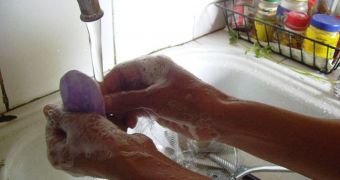Obsessive-compulsive disorder (OCD) is a relatively widespread condition that traces its roots to infancy. Researchers have recently established a new way of keeping track of symptoms related to this condition in children. Parents can keep track of them in order to catch the condition early on.
The combination of behaviors that researchers at the Tel Aviv University Department of Psychology decided to study in detail included hypersensitivity to taste or touch, as well as rituals related to eating, bathing and going to bed.
The latter are all parts of healthy behavioral development and education, but they can become early warning signs when combined with hypersensitivity of certain senses. TAU scientists say that parents need to be on the lookout for this specific type of behavior.
They add that parents should only be worried when they see excessive adherence to childhood rituals in their kids. It's in the little ones' nature to move away from such rituals every once in a while. Not doing so at all could be a sign that something is wrong.
The new investigation was carried out by TAU scientist Reuven Dar, PhD, and was published in a paper appearing in the latest issue of the Journal of Behavior Therapy and Experimental Psychiatry.
One of the most interesting findings the team made was that sensory processing appears to be somehow connected to both ritualistic and obsessive-compulsive behaviors. The exact nature of this link has not yet been deciphered, but will undoubtedly yield its secrets in future studies.
For some kids, rituals and repetitive behaviors could develop as a self-defense mechanism, against what they perceive to be the aggression of the world around them. Psychologists say that those who are extremely sensitive to smell and touch may oftentimes feel like the world outside is confrontational.
“If you see that a child is very rigid with rituals, becoming anxious if unable to engage in this behavior, it is more alarming,” Dar explains. He also warns that parents should not overreact, either. It is entirely acceptable to see these behaviors in kids as old as 5 or 6.
However, when these repetitive behaviors are displayed by kids beyond the ages of 8 or 9, then this should be interpreted as an early warning sign, and a trip to the doctor may be in order. An early diagnosis allows doctors to handle the condition differently than if OCD has time to set in properly.
Anxiety is another early indicator of OCD, especially if accompanied by the aforementioned behaviors, PsychCentral reports.

 14 DAY TRIAL //
14 DAY TRIAL //